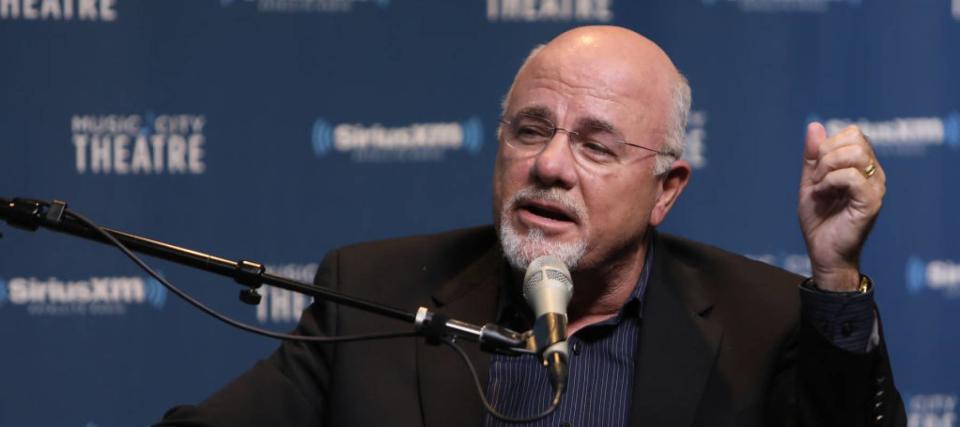Dave Ramsey says 'very few people' who look like they have money actually do — what he says is the true test

All that glitters is not gold. According to Dave Ramsey, this is also true for personal finances.
“Very few people who look like they have money actually do,” said the financial guru on an episode of The Ramsey Show. “The huge car, expensive car, the vastly expensive vacation on Instagram, the vastly expensive fill-in-the-blank, are very seldom actual indicators of wealth.”
Don't miss
Commercial real estate has beaten the stock market for 25 years — but only the super rich could buy in. Here's how even ordinary investors can become the landlord of Walmart, Whole Foods or Kroger
Cost-of-living in America is still out of control — use these 3 'real assets' to protect your wealth today, no matter what the US Fed does or says
These 5 magic money moves will boost you up America's net worth ladder in 2024 — and you can complete each step within minutes. Here's how
An effort to keep up appearances has, in fact, pushed many Americans into debt.
Money dysmorphia
The rise of social media has created a steady stream of conspicuous consumption. It’s now easier than ever to see the cars, houses and vacations your friends and families are indulging in and that’s having an impact on the way many Americans view their own wealth and finances.
A significant 29% of American adults surveyed by Qualtrics for Intuit Credit Karma said they experienced “money dysmorphia,” a term financial advisers have coined to describe a feeling of insecurity when it comes to your financial well-being, even if you’re not actually faring as poorly as you believe. This psychological disconnect between perception and reality is wider for younger Americans, with 62% of Gen Z Americans surveyed by LendingTree saying they feel financial pressure to keep up with someone within their circle, such as a family member or friend.
That survey also found that 51% of respondents admitted to overspending to impress others. Amongst this cohort, 56% are now in debt because of this overspending.
Borrowing money to splurge on items only to impress others could trigger unsustainable lifestyle inflation. Once you’ve stretched your budget to buy that fancy car or borrowed money to go on vacation, you may struggle to sustain that loan. This could be why even high-income Americans are now struggling to make ends meet. Roughly half of six-figure earners said they were living “paycheck to paycheck” according to a recent Lending Club survey.
However, if consumption isn’t an indicator of wealth, what is? Here’s how Ramsey defines “true wealth.”
Read more: Car insurance rates have spiked in the US to a stunning $2,150/year — but you can be smarter than that. Here's how you can save yourself as much as $820 annually in minutes (it's 100% free)
True wealth
On his website, Ramsey offers his definition of financial success: “True wealth is about three things: making an impact through giving, leaving a legacy and having options for how you live your life.”
Being able to donate to charity or for worthy causes is a genuine sign that you and your family have economic security and abundance. By this measure, the U.S. is in a pretty good spot with regular Americans comprising 64% of all American charitable donations in 2022, according to an analysis by the United Nations.
Leaving a legacy to loved ones is another common sign of true wealth. Americans are relatively wealthy by this measure too as 68% of Gen Z and millennial Americans have already received an inheritance or expect to receive one in the future, according to USA Today Blueprint. The average size of this inheritance is $320,000.
Ramsey’s final yardstick for true wealth is more subjective and difficult to measure, but the freedom to choose your lifestyle, where you live, and how you spend your time is another signal of financial success. And for those who’ve been lucky enough to find that in their lives, they know it’s priceless.
What to read next
Car insurance premiums in America are through the roof — and only getting worse. But 5 minutes could have you paying as little as $29/month
Jeff Bezos and Oprah Winfrey invest in this asset to keep their wealth safe — you may want to do the same in 2024
Stop crushing your retirement dreams with wealth-killing costs and headaches — here are 10 'must-haves' when choosing a trading platform (and 1 option that has them all)
This article provides information only and should not be construed as advice. It is provided without warranty of any kind.

 Yahoo Finance
Yahoo Finance 